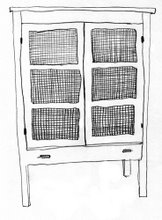
Melburnians, despite their love of good coffee, are yet to discover the wonders of single origin specialty coffee beans, says coffee hunter Stephen Hurst, from Mercanta the Coffee Hunters.
As I recently wrote, Mr Hurst believes that the future of coffee lies in the "flavour discovery" of single origin specialty coffee beans. He says consumers are used to drinking the industrial blends offered to them but he believes good coffee starts from single estate, or single origin, specialty coffee beans.
Unfortunately, like most good things in life, quality comes at an expense. While not specifying prices, Mr Hurst did acknowledge that single origin estate coffee would be more expensive. When penning my original article, I queried whether people would be willing to pay more for premium coffee, especially when a good coffee depends on so much more than the beans (a decent barista and coffee machine are also necessities).
Now, thanks to the good folk at Melbourne Coffee Merchants (the local offshoot of Mercanta), I have sampled some single origin estate coffee - and it is seriously good!
The coffee was El Guabo from north-eastern Peru. The beans were roasted, but not ground, and, in order to enjoy the coffee at its best, I also received a special filter cup, filter papers and an A4 sheet of instructions on how to correctly prepare filtered coffee.

The roasted beans had an intense, earthy caffeine smell that was quite intoxicating, especially once ground, although the aroma faded once the coffee was poured. It didn't have the same intense caffeine smell as a coffee extracted from a machine. There's no crema with a filtered coffee, so it was the blackest coffee I've ever seen.

The coffee was very smooth on the palate and quite sweet. Drinking this is how I imagine eating silk would be like. It slides sweetly down the throat with no acid aftertaste or puckering on the palate. I kept sipping, craving more, and suddenly the cup was empty. I drank this coffee black and there was no need to add sugar. There was a shortish aftertaste but this coffee improved after each sip and became more mellow.
The next day, I ground the beans and got Adam, who's the expert barista in our house, to make some coffees from the machine. I had a long black and Adam added some sugar but this was a mistake, as it made the coffee too sweet. The taste was softer on the palate than the filtered coffee but it was also not as flavoursome. The second coffee Adam made was a flat white and this was a massive disappointment. The milk did not blend well with the coffee. It tasted sickly and the coffee flavour was masked. The best way to enjoy this coffee is as a long black with no sugar added; this allows the full flavours and characteristics of the bean to shine through.
So I am a convert to this coffee. But what cost would there be to my hip pocket? Well, it turns out to be not as bad as I feared. St Ali sells 250g of the El Guabo coffee for $13.50, as opposed to $11 for 250g of the St Ali espresso blend (which also makes a very nice coffee). For such a small price difference, I would be willing to buy single origin estate coffee beans, as I think the extra flavour sensation is worth it, particularly if, like me, you make and drink a lot of black coffee at home. And I also think I would buy a coffee made from single origin estate beans from a cafe, as long as it was a cafe that took its coffee seriously, had an excellent barista, and the single origin beans were competitively priced against the industrial blend beans.




1 comment:
Hi Melinda
The taste experience that you enjoyed with the Peru El Guabo is only the tip of the iceberg in the world of specialty coffee in which espresso (and espresso based drinks) forms only one part. Filter or cafetiere coffee is another way to enjoy the finest taste spectrum that is the world of specialty coffee beans. I think discerning Australian coffee drinkers will begin to explore more ways to enjoy this unique beverage.
Post a Comment